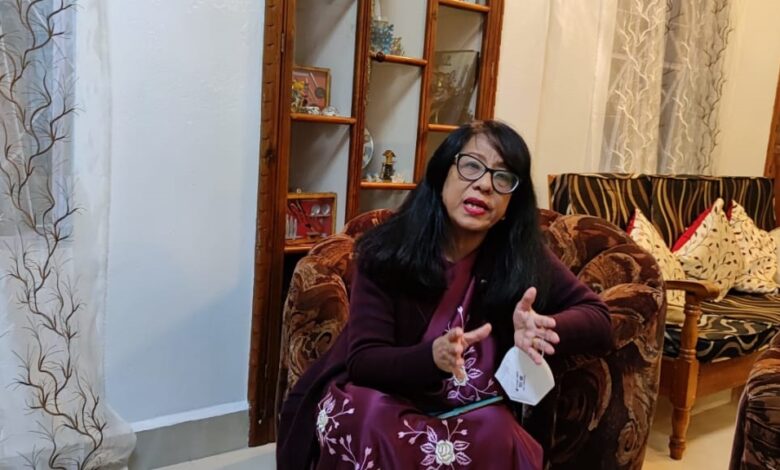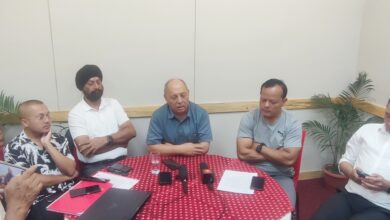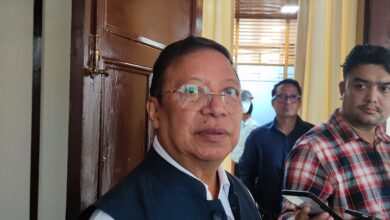‘Long waiting list a hurdle for Khasi language recognition’
Padma Shri Badaplin War points out the reasons behind the delay in inclusion of language in Eighth Schedule

Padma Shri awardee Badaplin War, a professor in the Khasi Department at NEHU, has vowed to pursue inclusion of the indigenous language in the Eighth Schedule to the Constitution of India.
War’s entire life was dedicated to Khasi language and literature at all levels of her career and research.
The 65-year-old academician tells Sunday Monitor about her vision to standardise Khasi language in the context of many dialects in the state. She is also in favour of uniform usage of the language in daily conversations and in vernacular newspapers.
Excerpts from the interview:
Sunday Monitor: With the Centre recognising your contribution to Khasi language, do you think there is hope for inclusion of the language in the Eighth Schedule to the Constitution?
Badaplin War: We are working towards that goal. The hurdle seems to be the long waiting list of languages for recognition. As you know, among the three language families, besides Indo-Aryan and Dravidian, the third largest language family is Austroasiatic.
Only Santhal from Austroasiatic family is in the Eighth Schedule. Hence, we hope Khasi, also part of Austroasiatic family, will find place in the Eighth Schedule to the Constitution as this will be the second language to be included.
SM: Do you think there is a lack of political will to push for recognition? There was also a protest rally in Shillong for fast recognition.
BW: Not only rally but seminars and similar other programmes were held in the past. The Centre is aware of the wish of the Khasi people and we hope that it will do the needful.
SM: Is the use of Roman script a hurdle for Khasi language recognition?
BW: I don’t think that will be a problem. There are many languages which do not have their own scripts. Bodo, for instance, is using Devanagari script. Though Khasi is using Roman script, it was accepted and recognised in educational institutions and it was also declared as associate official language by the state government in 2005.
Khasi was recognised by Calcutta University as early as 1919. We had met many people in the central government to pursue the recognition. The Union home minister had also assured us that the matter will be examined when we met him.
SM: Don’t you think more translations of Khasi literary works to English and other languages and vice versa should be encouraged to enrich Khasi language?
BW: Translation itself is the starting point of Khasi literature. Right from the time of missionaries, a lot of works were translated to Khasi. Later on, we had translated works from Greek, Latin, Sanskrit, Hindi and even from many other languages of the country.
SM: What is your observation about the trend of mixing Khasi and English in daily conversations?
BW: That is only a small percentage you are talking about. Here in Lummawbah locality where I stay, only a few speak English. Even I speak Khasi with my children and grandchildren. This is a misconception. Of course, English is a tool for communication and that is why we are communicating now in English.
SM: Do you think absence of vernacular schools in the state has hindered the usage of Khasi language?
BW: Thank you for asking that question. In fact, I am the president of the managing committee of Lummawbah Government LP School here. The government has made it clear that the students are to be taught in Khasi. If we want to use English, then we should have a separate section. You are right that schools are following English medium but the National Education Policy 2020 has given importance to mother tongue and we hope with the implementation of the policy, there will be change in approach.
SM: Don’t you think that we need to standardise the use of Khasi language as even vernacular newspapers want this?
BW: We are working hard for this both by the Khasi department of NEHU and Khasi Authors Society. The government of Meghalaya has provided some funds for bringing out a Khasi-to-Khasi dictionary which will standardise the Khasi language not only in spelling and grammar but also in pronunciation. This will also help non-Khasi speakers to learn the language correctly. We have started the work and I am the supervisor of the project. We are also working on many dialects of Khasi language.
SM: Lastly, what is your message for others to excel in life after your Padma Shri award.
BW: I urge youths to do what inspires them with hard work and honesty irrespective of fields of interests. Award will come and go or it may not come but at the end one should be happy with the work one is doing.
~ Team Sunday Monitor
Photos by MM




